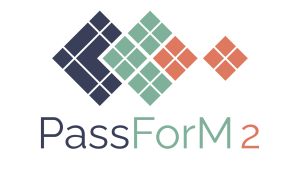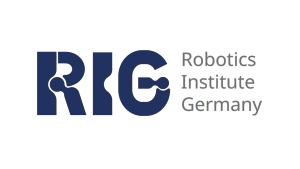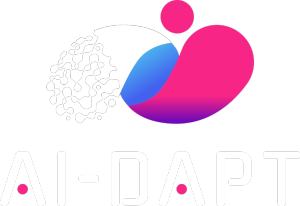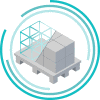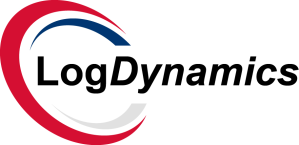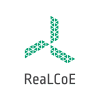Filter projects

SAILEX
Sales and operations intelligence with explainable AI
Duration 15.02.2025 - 15.08.2026, Funded by Land Bremen / FEI
Show project description Hide project description
The project aims to develop an AI-based analysis tool for ERP systems that combines sales data with internal and external factors. This will not only enable general sales trends to be recognised, but also individual correlations, such as discounts or external influences such as weather and political events. This helps to create more precise purchasing forecasts, avoid bottlenecks and reduce excess stock and reduce excess stock, which saves storage costs. In addition, a large language model is also used to explain the AI forecasts in order to ensure the traceability decisions, supported by explainable AI approaches.
Contact person
- S. Leohold () (Project manager)
Keywords
Digitalisation, Sustainability, Services industry, Trade and commerce, Assistance systems, Machine learning / artificial intelligence
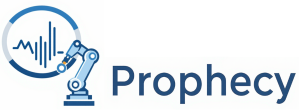
Prophecy
Prognostic Model Selection for Predictive Maintenance and an Integrated Reinforcement Learning-based Production Scheduling in Dynamic Manufacturing Systems
Duration 01.02.2025 - 31.01.2027, Funded by DFG
Show project description Hide project description
This research project is a collaboration between the Bremer Institut für Produktion und Logistik (BIBA) at the University of Bremen, Germany, the Federal University of Rio Grande do Sul (UFRGS), Brazil, the Federal University of Santa Catarina (UFSC), Brazil, and the Federal University of Amazonas (UFAM), Brazil.
The goal of this project is to develop a self-adaptive model selection method for predictive maintenance that is fully integrated into production and maintenance planning. To achieve this, a machine learning-based approach will be developed, enabling the automated selection of suitable prognostic models for different system configurations and conditions. A key aspect is the incorporation of reinforcement learning for the dynamic optimization of machine availability and utilization in real time. This is based on a digital representation of the production system, which allows for the evaluation of decision impacts using production logistics KPIs. This performance assessment enables targeted feedback between meta-learning and reinforcement learning, contributing to the continuous improvement of the system.
A key aspect of the project is the integration of reinforcement learning to dynamically optimize machine availability and utilization in real time. This is based on a digital representation of the production system, allowing the assessment of decision impacts using production logistics KPIs. The continuous feedback loop between meta-learning and reinforcement learning facilitates the ongoing improvement of the system. To validate the developed methods, a simulation-based environment will be created, which replicates the relevant production and maintenance processes with the required level of abstraction. Finally, the developed system will be tested in two industrial use cases in Germany and Brazil.
Contact persons
- H. Engbers () (Project manager)
Keywords
System development and planning, Process optimisation and control, Automotive, Process modelling and simulation, Machine learning / artificial intelligence

Smartport Living Lab
Reactive, intelligent condition monitoring of the harbour superstructure
Duration 01.02.2025 - 31.12.2027, Funded by Land Bremen / EFRE / EFRE-Bremen 2021 - 2027 (FKZ: 265/PF_BIBA_SMARTPORT/2025)
Show project description Hide project description
The ‘Smartport Living Lab’ project addresses the challenges facing Bremen's ports in competition with the North Range ports. The aim is to develop innovative systems for a connected and sustainable port industry in Bremen/Bremerhaven. Flying drones and autonomous mobile robots are key technologies at BIBA for innovative condition monitoring solutions. These technologies are developed and tested in decentralised living labs, supported by a Smart Cooperation Platform that promotes collaboration between the participating research institutions and partners. The project strengthens the sustainable competitiveness and growth potential of the port locations and represents Bremen's innovative strength in maritime logistics.
Contact persons
- L. Rolfs () (Project manager)
- D. Keiser ()
- M. Kreutz ()
- C. Petzoldt ()
Keywords
Robotics and automation, Digitalisation, Maritime economy, Transport and logistics, Autonomous robot and transport systems, Machine learning / artificial intelligence
PiQASO
Post-Quantum Cryptography As-a-Service for Common Transmission Systems and Infrastructures
Duration 01.01.2025 - 31.12.2027, Funded by EU - DIGITAL-ECCC-2024-DEPLOY-CYBER-06-PQCINDUSTR
Show project description Hide project description
The PiQASO project addresses the urgent need for quantum-resistant cryptographic solutions to secure critical infrastructures and data in the face of advancing quantum computing threats. As quantum capabilities mature, existing cryptographic methods risk becoming obsolete, jeopardizing the confidentiality and integrity of sensitive information. PiQASO’s primary goal is to deliver agile, scalable, and practical Post-Quantum Cryptography (PQC) solutions that seamlessly integrate into legacy systems without requiring additional specialized hardware.
The project introduces “PQC as a Service” (PQaaS), providing operational implementations of NIST-standardized algorithms like Dilithium, FALCON, and SPHINCS+. PiQASO enables robust encryption, authentication, and identity management across diverse industries, offering flexibility through crypto agility—adaptation to evolving cryptographic needs. The project emphasizes the secure execution of PQC, incorporating programmable accelerators to optimize performance while maintaining resistance to physical and side-channel attacks.
BIBA will provide a comprehensive demonstration scenario - a safeguarding aviation testing infrastructure. It will show how a Distributed Hardware-in-the-Loop (HIL) testing in aerospace will benefit from secure communication channels fortified by PQC, ensuring real-time responsiveness (<100ms) and protecting intellectual property. Through these advancements, PiQASO aims to establish a sustainable path toward quantum-secure critical systems, fostering trust and resilience in a rapidly evolving technological landscape.
Contact persons
- K. Klein () (Project manager)
- K. Hribernik ()
Keywords
LAMAsense
INTEK - LAMAsense / Entwicklung eines digitalen Zwillings für die Instandhaltung und einer Service-Plattform als Nutzerschnittstelle
Duration
01.01.2025 - 31.12.2026,
Funded by BMWK
Download PDF-Flyer
Show project description Hide project description
Contact person
- M. Kreutz () (Project manager)
Keywords
Digitalisation, Agriculture, Machine learning / artificial intelligence, Digital twin
SIM-TWIST
Development of a simulation environment for automated terminal operation concepts with special consideration of automated twistlock handling
Duration 01.01.2025 - 31.12.2026, Funded by BMDV
Show project description Hide project description
Twistlocks are mechanical locking elements that are used to secure containers on ships. The current manual handling of twistlocks is time-consuming and poses risks to occupational safety. The research project SIM-TWIST investigates how automated twistlock handling systems (ATS) could be used in container terminals. A simulation environment is being developed and used to derive specific recommendations for the use of ATS. The benefit is the reduction of technical and economic risks in the future use of ATS and the promotion of the market maturity of such systems. This can increase efficiency, safety and profitability of container terminals.
Contact person
- S. Schukraft () (Project manager)
Keywords
Robotics and automation, Process optimisation and control, Maritime economy, Process modelling and simulation

NaBeMi
Development of a Quality Control Loop-Based Assistance System for Sustainable Resource Planning in Manual and Hybrid Assembly
Duration
01.11.2024 - 31.10.2026,
Funded by BMWK / IGF
Download PDF-Flyer
Show project description Hide project description
The NaBeMi research project addresses the growing importance of sustainability in consumer behavior and the challenges SMEs face in achieving sustainability goals in production. The aim of the project is to develop a methodology for sustainable resource planning that considers environmental, economic and social aspects. A web-based support system supports the resource planning process for manual and hybrid assembly systems. The methodology integrates three quality control loops to resolve conflicts between traditional and sustainability objectives, enabling comprehensive resource planning. This approach analyzes trade-offs and ensures high quality planning.
Contact persons
- D. Schweers () (Project manager)
- D. Keiser ()
Keywords
System development and planning, Sustainability, Manufacturing industry, Assistance systems

Wind-X
Conceptualisation, implementation and demonstration of interoperable solutions for traceability and digital twins in the wind industry
Duration 01.11.2024 - 31.07.2027, Funded by BMWK / NextGenerationEU
Show project description Hide project description
The Wind-X project aims to promote the wind industry through a data ecosystem for innovative and sustainable wind turbines over their entire life cycle. Experience, technologies and solutions from Catena-X, Gaia-X and other Manufacturing-X initiatives will be transferred to the wind industry. The aim is to develop data-driven solutions and software services specifically for the wind industry. Intelligent wind turbines and components prepared for digitalisation with standard-compliant asset administration shell sub-models are intended to support this. These digital twins will be equipped with configuration and communication capabilities as well as data room connectors. In addition, value-added services (‘business applications’) are being developed that utilise raw data from the supply chain for industry-specific use cases. Connectors and basic services serve as the infrastructure for operating the value-added services and enable interoperable data rooms. This will be demonstrated using the two use cases ‘Traceability for Sustainability and Logistics’ and ‘Digital Twin in the Production and in the Field’ for the wind industry.
BIBA's main objective is to coordinate and develop these two use cases. In particular, the focus here is on specifying the information requirements, clarifying the framework conditions, defining and deriving business mechanisms and identifying relevant data sources and sinks. Building on this, BIBA and its partners will drive forward the concept development and implementation of sub-models and the data integration of the superordinate data space. BIBA will then support the development of data room services for querying and transferring data from the sub-models for both use cases. BIBA will then develop a demonstrator for both use cases.
Contact persons
- J. Uhlenkamp () (Project manager)
- E. Broda ()
- S. Eberlein ()
- M. Franke ()
Keywords
Digitalisation, Interoperability, Wind energy, Digital twin, Digital platforms / IoT
SanAssist
Development of AI speech intelligence for customer service in the sanitary sector within BIM framework
Duration 01.11.2024 - 31.10.2026, Funded by BMWK
Show project description Hide project description
The SanAssist project aims to significantly improve the digitalization of customer service in the sanitary sector through innovative methods of optical image and video analysis, as well as AI-based voice solutions. In light of the existing shortage of skilled workers, an intelligent system is being developed that automates the processing of customer inquiries and increases efficiency by handling simple queries and tasks through automated responses, cost estimates, and product suggestions at the Level 1 support level. The BIBA sub-project includes the preliminary classification of email attachments as well as image-based object recognition of SHK parts. By integrating multiple technologies such as machine learning and image-based object recognition, a novel workflow is created that enables the automated extraction of text and image information. Expert evaluations and customer surveys conducted in collaboration with project partners will ensure the quality of the developed solution with the aim of sustainably optimizing customer service and interaction in the sanitary sector.
Contact persons
- H. Stern () (Project manager)
- W. Zeitler ()
Keywords
Digitalisation, Construction industry, Machine learning / artificial intelligence, AR / VR / Speech
EMPOWER
XR-based Digital Assistant Enabling Skills Empowerment for Human-Robot Co-Working in safety-critical industrial Applications
Duration 01.10.2024 - 30.06.2025, Funded by EU - MASTER-XR Open Call
Show project description Hide project description
EMPOWER aims to revolutionize workplace safety through cutting-edge XR technologies. With a clear market need and a strong value proposition, EMPOWER is confident in the ability to drive significant improvements in safety and operational efficiency across various high-risk industries. EMPOWER will contribute to the implementation of MASTER platform tools by promoting a novel pedagogical / training approach, training in real industrial applications, to be implemented in the form of an XR-based digital assistant focusing on the imperative topics: safety and ergonomics in safety-critical industrial workplaces such as HRC assembly processes. The outcomes of EMPOWER are dedicated to the training of human workforce (unskilled and advanced human operators, experts) in industrial environments to ensure the assistance and enhancement of their learning experience towards these topics in human-robot interactive applications. The envisaged modular XR-based tool comprises sub-modules for real-time visualization, digital assistant, HRC knowledge base, data gathering and safety and ergonomics assessment purposes. The modularity approach will enable the adaptability of the developed tool addressing comparable safety-critical scenarios (e.g. HRC welding processes).
Contact persons
- Z. Ghrairi () (Project manager)
- A. Heuermann ()
- K. Hribernik ()
Keywords
Human-technology interaction, Process optimisation and control, Research and development, Training & qualification, AR / VR / Speech
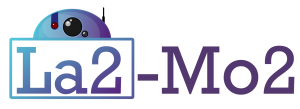
La2-Mo2
Development of an LLM pipeline for processing and transforming natural language commands into context-dependent robot commands
Duration
01.10.2024 - 30.09.2026,
Funded by BMWK
Download PDF-Flyer
Show project description Hide project description
The assembly industry faces increasing product variety and customization, which demands production flexibility, complicating Cobot automation, especially for SMEs. Despite Cobot market growth, frequent reconfiguration remains a challenge. Natural language programming could simplify this, but current models lack contextual understanding and precision.
The La2-Mo2 project aims to develop a system that uses LLMs for programming Cobots through natural language. By interpreting spoken instructions and converting them into precise robot commands, the system will make Cobot programming more accessible, reducing complexity and increasing flexibility, particularly benefiting SMEs in assembly processes.
Contact persons
- J. Liebchen () (Project manager)
- C. Petzoldt ()
Keywords
Robotics and automation, Human-technology interaction, Manufacturing industry, Assistance systems, Machine learning / artificial intelligence
iTEK
Preparation of a Horizon Europe Project for innovative Technology Assessment for the European Disaster Response Community
Duration
01.10.2024 - 30.09.2025,
Funded by BMBF
Download PDF-Flyer
Show project description Hide project description
The number of natural disasters, such as floods and forest fires, is rising sharply both worldwide and in Europe. Targeted adaptation measures, such as the use of new technologies, are necessary to reduce the impact on the European population. It is assumed that these can reduce the impact to below the 2020 baseline, regardless of a global warming scenario. However, selecting suitable technologies is a challenge for the emergency services. Although they are experts in their field of disaster relief, they usually lack resources and experience in selecting technologies.
iTEK will prepare an EU research proposal that addresses this problem by developing, validating and demonstrating a mechanism that enables a reliable scientific evaluation of innovative technologies for different disaster response scenarios. Special focus is placed on the integration of disaster management organisations as end users.
BIBA mainly carries out research for medium-sized manufacturing and logistics companies. Although many applications and solution approaches from this sector can generally be transferred to civil security research and the field of disaster control, this domain - which is new to BIBA - brings with it a number of hurdles that BIBA is now addressing in iTEK in cooperation with the German disaster response organisation @fire, ASB Lower Saxony and SWMS Consulting.
Contact persons
- M. Stietencron () (Project manager)
- K. Hribernik ()
Keywords
Research and development, Authorities and emergency services
iCRANE
Development of a mobile assistance system to increase the safety of heavy-duty cranes by means of sensory and optical monitoring and verification of assembly
Duration 01.09.2024 - 31.08.2026, Funded by BMWK
Show project description Hide project description
The use of cranes is planned on a customer-specific basis and therefore order-related. The selection and overview of the availability of attachments at the depot or across several operating sites depends on the crane rental company's experience and individual inventory management. On the construction site, the delivery, positioning and assembly of the crane components requires a great deal of coordination. The load-bearing capacity of the crane depends in particular on the correct assembly of the attachments, which must be carried out in accordance with the previous planning of the crane deployment. Incorrect assembly jeopardizes the safety of the crane operation and, in the worst case, can lead to the crane toppling over. With this in mind, this project is developing a mobile assistance system to increase crane safety and support the coordination of employees at the depot and on the construction site. The system is divided into three sub-areas: (1) optimization of component control at the depot and construction site, (2) verification of the planning-compliant design of a mobile crane with regard to operational safety and (3) recording and analysis of loads on individual components.
Contact persons
- H. Engbers ()
- N. Jathe ()
- S. Oelker ()
- M. Quandt ()
Keywords
Digitalisation, Process optimisation and control, Services industry, Construction industry, Assistance systems, Wireless communication technologies (5G etc) and sensors

SENSOMAI
Sensor-supported AI-based benchmarking platform for the human-centred and economical selection and introduction of support systems in intralogistics processes
Duration
01.08.2024 - 31.07.2026,
Funded by BMBF
Download PDF-Flyer
Show project description Hide project description
Companies need to improve their production and intralogistics processes due to rising costs and increasing demands for flexibility. This requires a comprehensive process analysis, which is very time-consuming. Small and medium-sized enterprises (SMEs) in particular struggle to select suitable technologies for intralogistics solutions. The goal of the SENSOMAI project is to develop a user-friendly data platform that supports SMEs in selecting and implementing intralogistics systems. This platform utilizes motion data collected by sensors and analyzes it using a deep learning method. The platform identifies optimization potentials and suggests appropriate intralogistics solutions. A before-and-after comparison allows the evaluation of improvements within the company. The platform continuously enhances its recommendations through the validation of results. SENSOMAI is an innovative solution that offers technology-neutral selection options and addresses multiple user groups.
Contact persons
- L. Rolfs () (Project manager)
Keywords
Digitalisation, Process optimisation and control, Transport and logistics, Manufacturing industry, Assistance systems, Digital platforms / IoT
PassForM2
Process-Driven Adaptation of Agent-Based Control for Modular Assembly Systems
Duration
01.08.2024 - 31.07.2026,
Funded by BMWK / IGF
Download PDF-Flyer
Show project description Hide project description
The shift from mass production to customized manufacturing presents immense challenges for companies, particularly in assembly, which accounts for more than half of the production time and 20% of the costs. For small and medium-sized enterprises (SMEs), easily scalable solutions are essential. SMEs benefit especially from flexible systems, as these allow them to adjust their production processes efficiently without investing in expensive, specialized equipment.
PassForM2 develops an innovative control system for modular assembly systems that can adapt flexibly to changing requirements. In addition to assembly, other systems such as automated guided vehicles (AGVs) can be seamlessly integrated. Through interchangeable hardware modules and decentralized control, we increase efficiency, reduce production costs, and ensure greater resilience against system failures. This technology helps SMEs achieve sustainable small-batch and series production while enhancing their competitiveness by enabling them to respond cost-effectively and adaptively to market changes.
Contact persons
- B. Vur () (Project manager)
- A. Heuermann ()
Keywords
Robotics and automation, Interoperability, Manufacturing industry, Research and development, Autonomous robot and transport systems, Digital twin
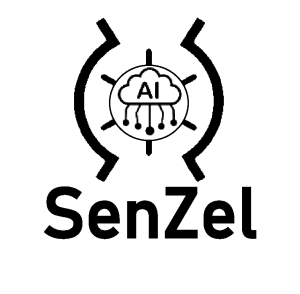
SenZel
Development and implementation of AI-supported monitoring and analysis technologies for rotary valves
Duration 01.07.2024 - 30.06.2026, Funded by BMWK / IGF
Show project description Hide project description
Rotary valves are used in industrial plants for shutting off, discharging or volumetric dosing of bulk materials. They prevent dust and gases from escaping. Maintenance poses a challenge, as rotary valves are subject to heavy wear and are usually not easily accessible. The aim is to increase efficiency by reducing downtimes and optimising maintenance costs with artificial intelligence.
Contact person
- M. Lütjen () (Project manager)
Keywords
Robotics and automation, Chemical and raw materials industry, Machine learning / artificial intelligence, Digital platforms / IoT
RIG
Robotics Institute Germany
Duration
01.07.2024 - 30.06.2028,
Funded by BMBF
Download PDF-Flyer
Show project description Hide project description
The Robotics Institute Germany (RIG) connects leading robotics locations across Germany into a decentralized research network to enhance the international visibility of German robotics research. Research is coordinated through a joint roadmap and research clusters that address the needs of both industry and society. Additionally, a shared research infrastructure is being established. Specialists are trained through targeted education and training programs, robotics benchmarks and innovation competitions are developed, and measures to support start-ups and industry transfer are initiated. RIG strengthens the global reputation of "made in Germany" robotics and unlocks potential through the use of robotic systems in new applications.
Contact person
- C. Petzoldt () (Project manager)
Keywords
Robotics and automation, Human-technology interaction, Transport and logistics, Manufacturing industry, Autonomous robot and transport systems, Digital twin

ForkLoad
Autonomous pallet loading using an external sensor and control system for retrofitting forklift trucks
Duration 01.07.2024 - 30.06.2026, Funded by BMWK
Show project description Hide project description
The aim of the project is to develop a retrofittable system to enable conventional electrically powered forklift to load pallets autonomously. BIBA is developing an external multi-sensor system and algorithms for vehicle and loading control, which communicates with a control module that will be integrated into the forklift.
Contact persons
- A. Börold () (Project manager)
- J. Liebchen ()
Keywords
Product and process development, Robotics and automation, Transport and logistics, Autonomous robot and transport systems, Machine learning / artificial intelligence

SMART
Dynamic control of collaborative assembly in the digital twin using AR and AI-based situation recognition
Duration
01.06.2024 - 31.05.2026,
Funded by BMWK
Download PDF-Flyer
Show project description Hide project description
The goal of the SMART cooperation project is to develop an overall system for the dynamic control and task allocation of collaborative assembly processes. For this purpose, the implementation of an AI-based situation recognition using AR devices, which, together with a software platform for dynamic work planning, forms the basis for intelligent and collaborative process and robot control. An AR visualization is being developed for the direct involvement of employees, which shows the process planning and the planned robot actions in real time and thus enables close human-robot collaboration. A digital twin is used to integrate, simulate and control all subsystems.
Contact persons
- C. Petzoldt () (Project manager)
- D. Keiser ()
Keywords
Robotics and automation, Human-technology interaction, Automotive, Manufacturing industry, Autonomous robot and transport systems, AR / VR / Speech
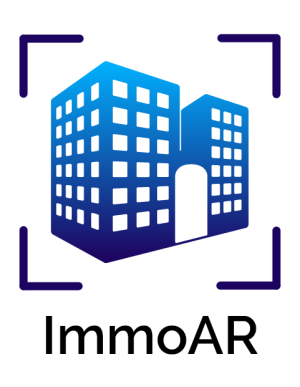
ImmoAR
Augmented reality system for realistic ‘on-site’ visualisation of industrial property projects using special tablets and WebAR technology
Duration
01.04.2024 - 31.12.2025,
Funded by BMWK
Download PDF-Flyer
Show project description Hide project description
The ImmoAR project aims to create an innovative AR framework with specially developed hardware to simplify the communication of industrial property. The central component is the development of a special tablet with a high-precision AR display. In addition, an AR application is being developed in Python to display visualisations and planning statuses. Another focus is on optimising a web display and implementing an efficient interface to the AR application in order to support complex 3D models. The application is designed for the communicative mediation of commercial property in order to ideally adapt the AR software and improve the GeoAR functionalities.
Contact persons
- R. Leder () (Project manager)
- W. Zeitler ()
Keywords
Digitalisation, Construction industry, Assistance systems, AR / VR / Speech
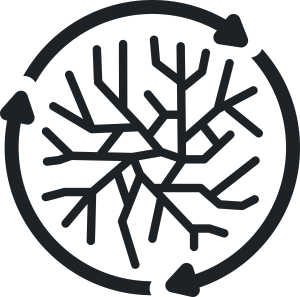
MycelCycle
Integrated material, process and product development methodology for product life-cycle optimized mycelium-based packaging products as part of circular economy
Duration
01.02.2024 - 31.01.2028,
Funded by Volkswagen Stiftung
Download PDF-Flyer
Show project description Hide project description
Sustainable and closed material cycles made from biogenic and recycled resources are becoming increasingly relevant as raw materials become limited. The goal of the project is to develop an integrated methodology for the material, process, and product development of mycelium composite materials using the example of cooler boxes. Mycelia has the potential to transform biomass with its thread-like hyphae into compact structures in just a few days. The project addresses current challenges in the product life cycle in order to design optimized material cycles using mycelium technology. The research framework includes the use of AI-based methods for identifying material combinations and for quality assurance.
Contact persons
- B. Pupkes () (Project manager)
Keywords
Product and process development, Sustainability, Energy and environment, Manufacturing industry, Machine learning / artificial intelligence, Life cycle assessment
AutoLog
Development of autonomous driving processes and dynamic storage and logistics concepts on automotive terminals
Duration
01.01.2024 - 31.12.2026,
Funded by BMDV
Download PDF-Flyer
Show project description Hide project description
The logistics services provided by seaports and inland ports are crucial for German imports and exports and for the global distribution chains of the German automotive industry. Vehicle compounds serve as hubs that are an integral part of the German automotive industry's finished vehicle logistics. Despite this central role, vehicle compound operators face challenges such as increasing handling volumes, limited terminal space, staff shortages and growing demands for efficiency and flexibility.
The AutoLog research project aims to explore and realise optimisation potential through the use of automated driving at vehicle compounds. The project aims to increase the efficiency and flexibility of terminal operations through technological developments for the digitalisation of processes and the automation of driving movements.
The main objectives of the project are
Suitability of automated driving at vehicle compounds: Investigation of the process and infrastructure requirements at the vehicle compound for the successful implementation of automated driving.
Technical infrastructure and sensors: Developing the design of the technical infrastructure and sensor technology to ensure robust and safe vehicle control.
Human-machine interactions: Investigating how human-machine interactions can be designed to enable intuitive and safe interaction between automated and non-automated processes.
Optimisation potential for storage and logistics processes: Identification of optimisation potential for related storage and logistics processes through the introduction of automated driving.
By specifically researching and implementing these objectives, the AutoLog project aims to overcome the challenges of vehicle compounds and sustainably improve the future of finished vehicle logistics.
Contact persons
- M. Hoff-Hoffmeyer-Zlotnik () (Project manager)
- R. Caballero Gonzalez ()
- S. Leohold ()
- L. Panter ()
- L. Rolfs ()
Keywords
Human-technology interaction, Process optimisation and control, Maritime economy, Automotive, Process modelling and simulation, Wireless communication technologies (5G etc) and sensors
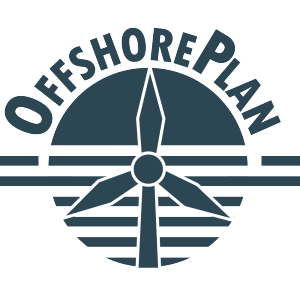
OffshorePlan II
Complementary application of mathematical and discrete-event models to solve complex planning and control problems in offshore construction logistics
Duration
01.01.2024 - 31.12.2025,
Funded by DFG
Download PDF-Flyer
Show project description Hide project description
Offshore construction logistics for wind farms define a complex planning and control problem for which there are no established methods. Discrete-event simulation methods or mathematical optimizations are used, which offer their advantages and disadvantages in terms of runtime, level of detail, and optimality constraints.
After the first project phase has laid the foundations in different models and a transformation framework, the second phase focuses on complementary use. In addition to increasing the problem complexity, a cascading framework will be developed that selects suitable model variants and combines them concerning necessary levels of abstraction.
Contact persons
- M. Lütjen () (Project manager)
- D. Rippel ()
Keywords
Process optimisation and control, Maritime economy, Wind energy, Process modelling and simulation
VR-VET
Virtual Reality network for VET providers
Duration 01.01.2024 - 31.12.2026, Funded by EU - Erasmus+
Show project description Hide project description
The VR-VET project aims to improve the non-destructive testing training methodologies through innovative pedagogical approaches and the development of an immersive vitual reality training platform.
At the core of the VR-VETproject is a commitment to advancing NDT training trough state-of-the-art technologies, the goal is to empower trainers with the tools and knowledge needed to cross the digital age effectively, while also promoting sustainability and inclusivity within the sector.
Contact person
Keywords
Digitalisation, Manufacturing industry, Research and development, Serious gaming and gamification, AR / VR / Speech
AI-DAPT
AIOps framework to support and automate data and AI pipelines
Duration 01.01.2024 - 31.05.2027, Funded by EU - Horizon Europe
Show project description Hide project description
Today, Artificial Intelligence (AI) has paved a long way since its inception and has started experiencing exponential growth across various industries and shaping our world in ways that were once thought impossible. As AI transitions from research to deployment, leveraging the appropriate data to develop and evaluate AI models has evolved into one of its greatest challenges. Data are in fact the raw material and the most indispensable asset fuelling much of today’s progress in AI, generating previously unattainable insights, assisting more evidence-based decision-making, and bringing tangible business/economic benefits and innovation to all involved stakeholders. However, despite their instrumental role in determining performance, fairness, and robustness of AI systems, data are paradoxically characterised as the most under-valued and de-glamorised aspect of AI while a data-centric focus is typically lacking in the current AI research.
AI-DAPT aims to deliver an innovative and impactful research agenda that will provide tangible benefits to a variety of stakeholders that struggle with making AI services. Seeking to reinstate the pure data-related work in its rightful place, and reinforcing the generalizability, reliability, trustworthiness, and fairness of Al solutions, AI-DAPT vision relies on the implementation of an AIOps framework to support and automate AI pipelines that continuously learn and adapt based on their context. It enables proper purposing, collection, documentation, (bias) valuation, annotation, curation and synthetic generation of data, while keeping humans-in-the-loop across five axis: (i) Data Design for AI, (ii) Data Nurturing for AI, (iii) Data Generation for AI, (iv) Model Delivery for AI, (v) Data-Model Optimization for AI.
AI-DAPT brings forward a two-fold data-centric mentality in AI:
Data: AI-driven automation for data pipelines based on Explainable AI (XAI) techniques as well as synthetic data generation and observability.
Model: Automation on AI model building and hybrid science-AI solutions, bringing together data-driven AI models and science-based (first-principles) models that build on high-quality data.
Bridging the gap between data-centric and model-centric AI, AI-DAPT will turn over a new leaf in trustworthy AI and will nurture an ecosystem involving all AI and data value-chain stakeholders. The aim is to enhance their prosperous collaboration in order to deliver and apply innovative AI-driven methods that rely on smart and dynamic end-to-end automation of data, AI training/inference pipelines in the cloud-edge computing continuum.
To demonstrate the actual innovation and added value that can be derived through the AI-DAPT scientific advancements, the AI-DAPT results will be validated in two ways:
By applying them to tackle real-world challenges in four key industries: (4) Health, Robotics, Energy, and Manufacturing.
By integrating them into various AI solutions, whether open source or commercial, already present in the market.
Contact persons
- R. Hellbach () (Project manager)
- K. Hribernik ()
Keywords

Adapt2Mount
Development of a health-promoting assembly workplace with adaptive material provision and individual ergonomic optimization
Duration
01.09.2023 - 31.08.2025,
Funded by BMWK
Download PDF-Flyer
Show project description Hide project description
As part of the research project, a health-promoting assembly system is being developed for individual ergonomic optimization with adaptive material provision. A sensor system consisting of wearables and cameras records relevant data during work. The central element uses a digital twin that maps a 3D simulation of the work process, including human and assembly system models based on the recorded actual data. Based on the data, ergonomic optimizations are made, whereby the assembly station is initially set up, and the material arrangement is continuously dynamically adapted to the process execution of the individual employee during assembly.
Contact persons
- R. Leder () (Project manager)
Keywords
Human-technology interaction, Process optimisation and control, Manufacturing industry, Digital twin

ErgoKI
Detection and AI-based analysis of ergonomic data in manual assembly using wearbles and machine vision techniques
Duration
01.09.2023 - 30.04.2025,
Funded by Land Bremen
Download PDF-Flyer
Show project description Hide project description
The primary objective of the envisaged project ErgoKI is the development of a system designed for the acquisition and AI-driven analysis of ergonomic data within the context of manual assembly, employing wearables and machine vision techniques. Through the utilization of various sensors and the development of an underlying data layer, a process modelling is carried out which enables the analysis of ergonomics and productivity within the domain of assembly. The key performance metrics are visualised within an intuitive human-machine interface and individual suggestions for improvement are derived. This helps to develop a better understanding of the individual requirements of employees and to implement ergonomic improvements in a more targeted manner.
Contact persons
- B. Vur () (Project manager)
- J. Liebchen ()
- D. Schweers ()
Keywords
Human-technology interaction, Manufacturing industry, Machine learning / artificial intelligence, Training & qualification

MaxMaintain
Development of AR-based teleservices and intelligent job scheduling using diagnostic condition monitoring for the efficient maintenance of decentralized wastewater treatment plants
Duration
01.09.2023 - 31.08.2025,
Funded by BMWK
Download PDF-Flyer
Show project description Hide project description
The research project aims to develop a planning and control platform for personnel deployment to maintain small wastewater treatment plants. On the one hand, the platform will be used for the central recording and provision of customer and plant data for mobile employees and the central planning of orders and job offers. Specifically, the AR-based remote maintenance functionalities will support staff and customers in identifying, diagnosing, and documenting faults. In addition, using robust maintenance strategies, the platform will achieve a more even utilization of staff and avoid order peaks.
Contact persons
- D. Rippel () (Project manager)
- A. Ait Alla ()
- W. Zeitler ()
Keywords
Product and process development, Digitalisation, Energy and environment, Services industry, Assistance systems, Digital platforms / IoT

DigiKleb
Digitization of gluing processes in the automotive industry
Duration
01.08.2023 - 31.07.2026,
Funded by BMWK
Download PDF-Flyer
Show project description Hide project description
Within the framework of the sub-project, research is being conducted on the development of methods and procedures for the analysis and prediction of system behavior, for example, in order to identify causes of quality deviations and to propose quality measures. For this purpose, the interdependencies are modeled first qualitatively and then quantitatively by means of so-called effect networks, whereby the data standards of the Asset Administration Shell and OPC-UA are used as a basis in order to establish compatibility and direct system integration in the digital twin.
Contact persons
Keywords
Digitalisation, Process optimisation and control, Automotive, Process modelling and simulation, Machine learning / artificial intelligence

RessourcE
Developing human resources in service work
Duration
01.07.2023 - 30.06.2028,
Funded by BMBF
Download PDF-Flyer
Show project description Hide project description
A competence center for logistics and health-related services will be established in the project in collaboration with practitioners and scientists. RessourcE intends to initiate sustainable transfer structures between research and practice and develop innovations for effective work design, leadership and opportunities for human resource development in the field of low-qualified work. Technical solutions for ergonomic work design and diversity-oriented competence development in low-qualified work are developed, piloted and tested regarding broad applicability. These solutions include, for example, assistance systems for physical work, concepts for supporting mental health, or software tools for systematic selection of suitable assistance technologies.
Contact persons
- B. Pupkes () (Project manager)
- N. Hoppe ()
- L. Panter ()
- C. Petzoldt ()
- B. Vur ()
Keywords
Human-technology interaction, Maritime economy, Transport and logistics, Assistance systems, Training & qualification
CAREads
Computer-Assisted Recommendations for Employment ads: Webapp for the ML-based creation of job advertisements in the care sector
Duration 01.07.2023 - 30.06.2025, Funded by BMWi / AiF
Show project description Hide project description
Within the framework of the proposed project, CAREads is a web application that ideally supports users from the care sector in creating professional job offers. By providing as little information as possible (company website, job title), CAREads will be able to generate advertisements with modern designs and appealing, individualised texts. In the background, intelligent processes develop suggestions based on the user's needs. The basis for this is an extensive collection, processing and evaluation of published job advertisements, which are used to train machine learning models. The individualisation in design and text is realised by analysing the specified company website with regard to corporate identity or design, photos and texts and then using this content as input for the AI models trained for the care sector. Evaluations and adaptations of the suggested job offers flow into the AI models via a feedback loop in order to take greater account of the subjective impressions of the users over time.
Translated with www.DeepL.com/Translator (free version)
Contact persons
- M. Franke () (Project manager)
- K. Hribernik ()
Keywords
Product and process development, Services industry, Machine learning / artificial intelligence
MDZ-HB-OL
Mittelstand-Digital Centre Bremen-Oldenburg
Duration 01.04.2023 - 31.03.2026, Funded by BMWK
Show project description Hide project description
The Mittelstand-Digital Centre Bremen-Oldenburg pursues the goal of increasing the level of digitalisation of SMEs in the Northwest Metropolitan Region through individual support measures.
In addition to the classic manufacturing industry and production-related services such as logistics, the focus is also on the consumer-oriented service industry, such as tourism, gastronomy or the creative industry. The participation of the BIBA enables, among other things, the transfer of knowledge from the research projects to industry, the implementation of infrastructure and demonstrators, as well as the implementation of local events and online formats.
Contact persons
- A. Himstedt ()
- M. Knak ()
- A. Seelig ()
- M. Teucke ()
- S. Wiesner ()
Keywords
Digitalisation, Resilience, Training & qualification, Knowledge transfer



CompactedCooler
Development of a compactable and evacuable insulated container for frozen food shipping
Duration
01.04.2023 - 31.03.2025,
Funded by Land Bremen / EFRE / PFAU (FKZ: FUE V172)
Download PDF-Flyer
Show project description Hide project description
Food, especially chilled and frozen, is increasingly ordered online and must be shipped to customers while complying with the cold chain. The polystyrene or EPS boxes that are used nowadays for shipping of chilled and frozen goods, offer good technical properties, such as insulation or food safety, but have ecological disadvantages, not least because of the fossil raw materials. In order to improve the environmental balance of food transportation, the project is being developing an innovative packaging solution that consists largely of recyclable or bioplastics and uses insulating effects of a vacuum. In addition, an efficient return in terms of reusability is strived through a compactable design.
Contact person
- M. Trapp () (Project manager)
Keywords
Product and process development, Sustainability, Energy and environment, Transport and logistics, Life cycle assessment, Product life cycle management
WASABI
White-label shop for digital intelligent assistance and human-AI collaboration in manufacturing
Duration 01.03.2023 - 28.02.2027, Funded by EU
Show project description Hide project description
WASABI aims at providing SMEs with the tools and knowledge to improve workers capacities and performance, providing advanced user interfaces for continuous augmented hybrid-decision-making. Such interfaces assist employees in interacting with complex software, effectively reducing its skill floor. In consequence, humans will find using software easier and be more open to applying it effectively at work. WASABI’s advanced interfaces will cover, for instance, situation analysis, intervention identification, action
planning and execution, and impact monitoring and mitigation. One of the key technologies in WASABI’s solution portfolio is the digital intelligent assistant (DIA) - an anthropomorphic, task-oriented AI with a conversational interface. A network of DIHs that will help boosting impact by guiding SMEs in this new path will be created and integrated within other existing DIH networks. Our customized, federated, white-label shop will include such DIAs and skill-packages to help organizations reach their sustainability goals. Blue-collar and white-collar workers will be capable of using it for hands-free or eyes-free computer-interaction, AI-based advice and guidance, and augmented analytics.
Contact persons
- S. Wellsandt () (Project manager)
- M. Foosherian ()
- K. Hribernik ()
- I. Lengkong ()
Keywords
Human-technology interaction, Process optimisation and control, Chemical and raw materials industry, Manufacturing industry, Assistance systems, Machine learning / artificial intelligence
Pakur
AI-based counting, classification and inspection of palletized packages during goods receipt and inventory using optical methods on mobile devices
Duration
01.02.2023 - 31.05.2025,
Funded by BMWi / AiF
Download PDF-Flyer
Show project description Hide project description
Incoming goods inspection is still done manually in many SMEs. Automation of these processes optimizes incoming goods, reduces errors along the entire supply chain and creates competitiveness in the market for transport and warehouse logistics. The implementation of this automation, be it through own development or use of existing solutions on the market, is very costly and not feasible for many SMEs.
This is where the research project "Pakur" comes in, in order to enable SMEs in the logistics segment to implement (partially) automated data acquisition in incoming goods inspection or inventory. Recent breakthroughs in the field of image processing using neural networks are to be used to develop an easy-to-use, automatic, digital standard solution for identifying and counting packages based on images of the palletized goods. In doing so, the employee is to be supported by an app in order to accelerate the process of receiving and inventorying goods while minimizing potential errors. Here, algorithms are to be developed and neural networks trained that are capable of recognizing the individual elements, such as packages or bags, on a pallet without error, even in heterogeneous environments, analyzing their packing pattern and then deriving the number of elements correspondingly per unit load. This information can then be passed on directly to a possible inventory management system. Errors are thus detected at an early stage and incorrect information in the system is avoided.
The focus of the development is on the creation of the algorithms, based on current, innovative research. The transfer into practice is realized by a ready-to-use, open source software library that can be easily used by third parties and an open source demo application for the smartphone. This ensures that third parties can also actively use the result and apply it to other areas.
Contact person
- N. Jathe () (Project manager)
Keywords
Robotics and automation, Digitalisation, Transport and logistics, Assistance systems, Machine learning / artificial intelligence

Port2Connect
Intelligent Port Logbook for the Efficient and Sustainable Use of Port Infrastructure
Duration
01.01.2023 - 31.12.2025,
Funded by BMDV
Download PDF-Flyer
Show project description Hide project description
In Port2Connect (Intelligent Port Logbook for the Efficient and Sustainable Use of Port Infrastructure), a digital port logbook is being developed that increases the transparency and visibility of processes in the port and enables automatic planning and optimisation with artificial intelligence.
processes in the port and enables automatic planning and optimisation with artificial intelligence. Through the intelligent monitoring and assistance system, ships are digitally accompanied and monitored during their stay in the port. In particular, this is intended to achieve the goals for more efficient use as well as sustainable protection against damage to the existing port infrastructure and an improvement in the climate by reducing emissions.
The port logbook is being developed as an example for 2,200 metres of the Stromkaje in Bremerhaven. Various requirements are placed on such a system. These include the recording and allocation of emissions as well as the location of the berths directly on the Weser, which are exposed to the river current and the tidal range caused by the tides. Furthermore, in order to use the berths efficiently, ships in the port must be moved more frequently. In addition, large container ships in particular pose an increased risk of damage to the infrastructure, and it is precisely these ships that account for a large proportion of the port’s total emissions.
Contact person
- T. Schindler () (Project manager)
RaRe2
Human-centred Rapid Reconfiguration of Production and Value Chain in Fast Changing Scenarios
Duration
01.12.2022 - 31.05.2026,
Funded by EU - HORIZON-CL4-2022-TWIN-TRANSITION-01-01
Download PDF-Flyer
Show project description Hide project description
The European production landscape is facing major challenges that require sustainable and robust, but at the same time, highly efficient production systems that have the ability to respond to significant changes at high speed.
The global objective of the project RaRe2 is to create a flexible and resilient ecosystem platform enabled by the interaction of many European organizations that cooperate in the fast reconfiguration of process chains through collaborative systems and adaptable workforce upskilling.
In the project, digital twins of production and logistics systems augmented with forecasting, reconfiguration and optimization functions will be developed at different hierarchical levels along the entire value chain. In addition, methods for flexible and robust workforce planning will be developed. In the next step, the developed methods will be integrated in an ecosystem platform.
This research has been funded by the European Union's Horizon Europe Framework Programme (HORIZON) under project reference HORIZON-CL4-2022-TWIN-TRANSITION-01.
Contact persons
- S. Eberlein () (Project manager)
- K. Burow ()
- K. Hribernik ()
- S. Schukraft ()
- J. Uhlenkamp ()
Keywords
Value creation networks, Resilience, Transport and logistics, Manufacturing industry, Process modelling and simulation, Digital twin
hyBit
Hydrogen for Bremen’s industrial transformation
Duration
01.09.2022 - 28.02.2026,
Funded by BMBF
Download PDF-Flyer
Show project description Hide project description
The hyBit project plays a important role in the realization of the EU's goal of a climate-neutral economy by means of green hydrogen in a holistic energy transition. The overarching question of the project is: How can climate neutrality be achieved through the targeted technical, economic, ecological, legal and social design of hydrogen hubs? In five steps, pilot applications are defined via flexible modeling of logistics systems that run on hydrogen. For this purpose, transformation paths, infrastructure concepts and roadmaps will first be developed and simulated. The results and simulation performance will be made available to a central transformation platform, which will combine them with the results of other issues beyond mobility and logistics.
Contact persons
- L. Steinbacher () (Project manager)
- A. Ait Alla ()
- E. Broda ()
- D. Keiser ()
- S. Oelker ()
- M. Teucke ()
Keywords
Product and process development, Sustainability, Energy and environment, Transport and logistics, Process modelling and simulation, Life cycle assessment
NebulOuS
A META OPERATING SYSTEM FOR BROKERING HYPER-DISTRIBUTED APPLICATIONS ON CLOUD COMPUTING CONTINUUMS
Duration 01.09.2022 - 31.12.2025, Funded by EU - Horizon Europe
Show project description Hide project description
NebulOuS is developing an innovative meta-operating system that includes brokerage capabilities across the entire cloud computing continuum, enabling ad-hoc fog brokerage ecosystems that utilise IoT/edge and fog nodes in parallel with multi-cloud resources. NebulOuS thus enables the centralised management of applications hosted across the entire continuum of edge, public cloud and private cloud resources. In addition to the required network functions, NebulOuS also enables continuous optimisation of the deployment to take account of changing factors such as application utilisation or resource availability.
In NebulOuS, BIBA is researching how the concept of the digital twin can be applied to parts of the NebulOuS meta-operating system in order to optimise resource utilisation.
In parallel, BIBA and its partner @fire are trialling the NebulOuS platform in the disaster response use case of urban search and rescue. BIBA is transferring its many years of experience in the field of tracking and tracing to the infrastructure-independent localisation of first responders. The application developed by BIBA and @fire can be started and operated flexibly by the NebulOuS system on the computing resources available in the event of an emergency and can be scaled both vertically and horizontally at any time depending on the availability of resources.
Contact persons
- M. Stietencron () (Project manager)
- K. Hribernik ()
Keywords
Servitisation, Resilience, Telecommunications and IT, Authorities and emergency services, Digital platforms / IoT
FabLabs
Developing competences on the Internet of Things through digital fabrication laboratories
Duration 01.09.2022 - 31.08.2025, Funded by EU - Erasmus+
Show project description Hide project description
Fablabs Erasmus+ project aims to develop training material for supporting Fablab users, and Fablab Tutors/Teachers, including contents for design, coding and manufacturing with main focus on IoT, 5G, AI/Big Data and Blockchain technologies. The main project objectives include:
- Development of learning and teaching strategies and concept/guidelines for FabLabs mainly oriented to IoT related technologies like Blockchain and AI/Big Data.
- Development of didactic methods covering several target groups (University degree studies and general public), - development of learning material (blended learning including e-learning, face-to-face, workshops).
- Development of curriculum for training of design, manufacturing of prototypes using IoT, and AI/Big data technologies applied to industry or similar.
- Organization of training activities for tutors.
- Test of the learning material and tutorial during testing initiatives (courses).
- Optimization of learning content for tutors.
Within this project the learning content will be developed with a learner-centered approach and using case studies from selected branches of industry (examples) to let learners understand the industrial/practical relevance of the topic and show the linkage of principles and methods with relevant applications. Testing courses/workshops will be run at different targets (from apprenticeship to University level) for integrated testing, assessment and optimization of developed tools and contents.
Contact persons
- R. Hellbach () (Project manager)
- K. Hribernik ()
Keywords
Product and process development, Research and development, Training & qualification, Knowledge transfer
STRATUS
Entwicklung und operativer Einsatz von Micro Digital Twins zur Betriebs- und Lebensdaueroptimierung von Windfarmen durch prädiktive Datenanalyse
Duration 01.10.2021 - 31.05.2025, Funded by BMWK
Show project description Hide project description
Herausforderungen bei der Nutzung von Cloud-Technologien und verteiltem Edge Computing für eine tragfähige IoT-Plattform bestehen darin, hochaufgelöste Daten verfügbar zu machen und zu verarbeiten und dort mit KI-Modellen zu verknüpfen. Der Modellbildung kommt hierbei eine besondere Bedeutung zu, da das Verhalten der Systeme in einem komplexen Varianten-raum beschrieben werden muss, und es dabei auch kontinuierliche Veränderungen über eine Lebensdauer von 20 Jahren zu berücksichtigen gilt. Klassische IoT Plattformen und Strukturen, wie sie bereits u.a. in der Windenergiebranche eingesetzt werden, können die Dynamik des tatsächlichen Lebenszyklus von komplexen Produktsystemen wie Windenergieanlagen (WEA) nur unzureichend abbilden. Insbesondere unter Einbeziehung eines modularen WEA-Ansatzes ist die monolithische Errichtung von digitalen Zwillingen nicht ausreichend. In diesem Vorhaben soll daher ein flexibles, dezentrales Konzept für sogenannte „Micro Digital Twins“ (MDTs) entwickelt und gemeinsam mit dem Verbundpartner Nordex implementiert werden. Dabei wird besonderes Augenmerk auf universelle Anwendbarkeit in der Domäne und eine hohe Anpassungsfähigkeit des Konzeptes an die Weiterentwicklung des Standes der Technik gelegt.
Contact persons
- M. Stietencron () (Project manager)
- K. Hribernik ()
LogDynamics
Bremen Research Cluster for Dynamics in Logistics
Duration
01.01.2021 - 31.12.2026,
Funded by Land Bremen / Forschungs- und Transferschwerpunkt Logistik (FKZ: FTS)
Download PDF-Flyer
Show project description Hide project description
LogDynamics is a cooperating network of research groups from Universities and research institutes in Bremen. It provides research on logistics topics, an international doctoral training program, and transfer of technology between academia and industry. LogDynamics acts in the areas of logistics management and business processes, computer science and information technology, mathematics, and electrical and production engineering to solve logistics challenges in an interdisciplinary and cooperative manner.
Contact person
- A. Himstedt () (Project manager)
Keywords
Digitalisation, Maritime economy, Transport and logistics, Knowledge transfer
PeneloPe
Closed-loop digital pipeline for a flexible and modular manufacturing of large components
Duration 01.10.2020 - 30.03.2025, Funded by EU - H2020
Show project description Hide project description
The manufacturing of large-scale parts needs the implementation of holistic data management and integrated automation methodology to achieve the desired levels of precision using modular and more flexible equipment. Large-part manufacturing is characterised by a high level of required customisation (built-customer specific). Furthermore, the manufacturing of complex and large-scale parts involves a variety of subassemblies that must be manufactured and assembled first.
This high degree of personalisation implies a great effort in the design and the posterior verification after manufacturing, to achieve high precision. Nevertheless, this customised product-centric design requires an optimisation of the resources of the workshop (i.e. workers, machines, devices) for a responsive, reconfigurable and modular production. In addition, there is the worker-centric approach: performing key labour-intensive tasks while maintaining the industry-specific knowledge and skills of the workers.
PENELOPE proposes a novel methodology linking product-centric data management and production planning and scheduling in a closed-loop digital pipeline for ensuring accurate and precise manufacturability from the initial product design. PENELOPE is built over five pillars for developing a common methodology and vision deployed in four industrial-driven pilot lines in strategic manufacturing sectors: Oil&Gas, Shipbuilding, Aeronautics and Bus&Coach; with potential replicability to further industrial sectors. Moreover, it will be set up a pan-European network of Didactic Factories and showrooms, providing training and upskilling capabilities enabling the workforce transition towards Industry 4.0 and multi-purpose testbeds, for assisting the dedicated industry adaption. PENELOPE envisions to highly-increase EU manufacturing sector competitiveness by increasing production performance, quality and accuracy while ensuring workers’ safety and resource efficiency.
Contact persons
- K. Burow () (Project manager)
- K. Hribernik ()
- P. Klein ()
Keywords
Human-technology interaction, Digitalisation, Maritime economy, Research and development, Digital twin, Product life cycle management
EIT Manufacturing
EIT Manufacturing
Duration 01.01.2019 - 01.01.2026, Funded by European Institute of Innovation & Technology (E
Show project description Hide project description
The manufacturing industry is facing major challenges due to increasing global competition, low-cost production in developing countries and scarce raw materials. EIT Manufacturing is an initiative of the European Institute of Innovation and Technology (EIT), in which BIBA is one of 50 core partners.
EIT Manufacturing’s mission is to bring European manufacturing actors together in innovation ecosystems that add unique value to European products, processes, services – and inspire the creation of globally competitive and sustainable manufacturing. To do so, the initiative has six strategic objectives:
- Excellent manufacturing skills and talents: adding value through an upskilled workforce and engaged students.
- Efficient manufacturing innovation ecosystems: adding value through creating ecosystems for innovation, entrepreneurship and business transformation focused on innovation hotspots.
- Full digitalization of manufacturing: adding value through digital solutions and platforms that connect value networks globally.
- Customer-driven manufacturing: adding value through agile and flexible manufacturing that meets global personalized demand.
- Socially sustainable manufacturing: adding value through safe, healthy, ethical and socially sustainable production and products.
- Environmentally sustainable manufacturing: adding value by making industry greener and cleaner.
EIT Manufacturing aims for the following goals by 2030:
• Create and support 1000 start-ups
• 60% of manufacturing companies adopt sustainable production practices
• EUR 325 million investment attracted by EIT Ventures
• 50 000 people trained and up- or re- skilled
• Create 360 new solutions
• 30% of material use is circular
Contact persons
- P. Klein () (Project manager)
- K. Hribernik ()
Keywords
ReaLCoE
Next Generation 12+MW Rated, Robust, Reliable and Large Offshore Wind Energy Converters for Clean, Low Cost and Competitive Electricity
Duration
01.05.2018 - 31.01.2026,
Funded by EU
Download PDF-Flyer
Show project description Hide project description
Offshore wind energy is a key technology for generating renewable energies. Due to its complex processes regarding installation, operation and service, and therefore relatively high costs, offshore wind energy converters still cannot compete with today’s energy market prices. To create a competitive offshore WEC with a Levelised Cost of Electricity (LCoE) target of €35/MWh ReaLCoE takes a holistic approach and scrutinises costs in each link of the value chain.
As a key element of ReaLCoE, BIBA focusses on the digitisation of future offshore WECs and their adhered value chain. Besides the integration of sensors and the implementation of a condition-based monitoring system, the digital representation of the WECs through a digital twin (“product avatar”) takes a major part in BIBAs contribution to ReaLCoE. Building on this, a concept for predictive maintenance will be developed and realized. Furthermore, BIBA will develop optimised logistic and installation concepts and will conduct various performance simulations for a further reduction of supply chain and installation costs. To validate the concept, a technology platform for a first prototype of a digitised 12+MW turbine as well as a pre-series array of 4-6 WEC will be installed, demonstrated and tested.
Contact persons
- K. Burow () (Project manager)
- J. Uhlenkamp ()
- A. Ait Alla ()
- K. Hribernik ()
- S. Oelker ()
Keywords
Product and process development, Digitalisation, Maritime economy, Wind energy, Process modelling and simulation, Digital twin
Events:
March 31- April 4, 2025, Hannover
Girls' Day at BIBA
April 3, 2025, BIBA
Suppy Chain Day 2025
April 10, 2025, BIBA
Digital-Tour 2025: Nordenham
May 13, 2025, Nordenham
Humans and AI in the logistics of the future
22.06.2025
More events




